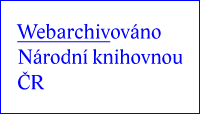Publication Ethics
Historia scholastica publication ethics policy is based on the Code of Ethics of the Committee on Publication Ethics (COPE), available at www.publicationethics.org.
Responsibilities for the authors
- Authors are obliged to participate in all stages of the peer review process, respond to comments from reviewers and on the basis of these observations implement the proposed amendments. In doubtful cases, they can turn to the editors with specific suggestions, or they can decide not to publish the contribution.
- Authors must not offer the identical or nearly identical text to other journals to publish.
- Authors must follow the instructions for authors, and comply with the rules for citing.
- By sending their contributions to the peer-review process the authors declare automatically that all the data contained in the contribution are true and authentic. If the author used the work and / or formulations of other authors, these must be properly cited.
- If an author finds a significant error or inaccuracy in his/her already published article, he/she shall immediately inform the editors and cooperate with the editor to retract or correct the contribution.
Responsibilities for the reviewers
- If the reviewer does not feel to be qualified to review the contribution or knows that he/she cannot review it without delay, he/she informs the editors and does not enter the review process.
- The reviewer is obliged to maintain objectivity.
- The reviewer is obliged to argument his views clearly.
- Each manuscript is considered to be a confidential document and should not be provided anyone and discussed with anyone without author´s permission.
- The reviewer must not misuse the information referred to in the reviewed contribution for personal or other purposes.
-
Reviewers can refuse elaboration of the review because of a conflict of professional interests. A conflict of interest is considered to be:
- professional, financial or personal benefit for a reviewer resulting from his/her approval or rejection of the reviewed contribution;
- cooperation on the project in the past five years;
- a fundamental difference of opinion on the main topic of the reviewed contribution;
- If reviewers due to any of the above reasons do not refuse to elaborate his/her review, the editors consider that no conflict of interest exists.
- Reviewers should advise the author about the lack of significant titles published on the topic. Reviewer should call the editors´ attention to any substantial similarity or overlap of the contribution with another published works, of which he/she is aware.
Editorial responsibilities
- Editors are obliged to assure that all the contributions have been anonymously assessed by external reviewers.
- Editors are accountable for any content of the journal and for quality of the published contributions.
-
Editors retain the objective approach to all the contributions submitted, i.e. in the decision-making process they are required to avoid conflicts of interest and honour the main selection criteria, which are:
- the professional level and the importance of the contribution;
- subject compliance with the focus of the journal.
- Editors make every effort to preserve the impartiality of the review process so as not to reveal the identity of the author's manuscript to reviewers and vice versa.
- In cooperation with the editorial board it solves possible appeals of authors against reviewers´ comments and other complaints.
- Makes final decision to accept or reject the contribution to publication.
Responsibilities for the editorial board
-
Editorial Board strives to improve continuously the professional and formal aspects of the journal, promotes freedom of expression, in accordance with generally respected ethics is prepared after discussion to publish any actual corrections, retractions and apologies.
- Editorial board has the authority to comment on the review process throughout its course.
- Guarantees that the above mentioned rules are followed.




